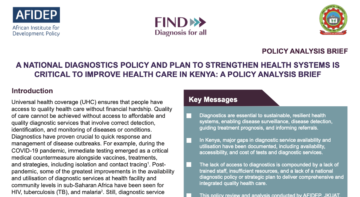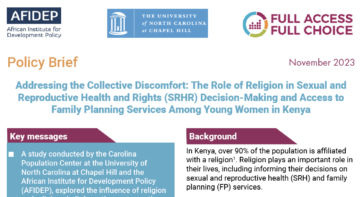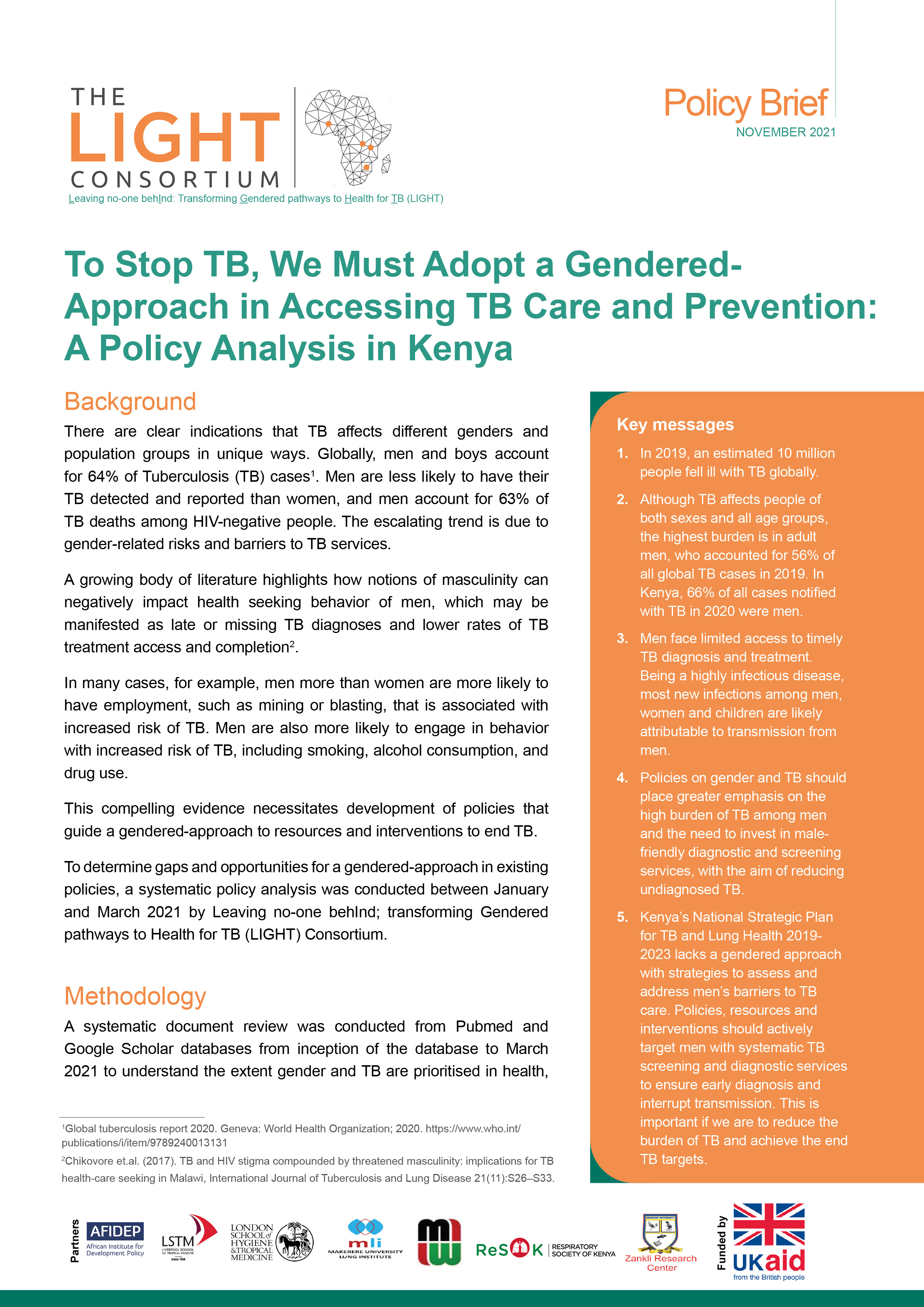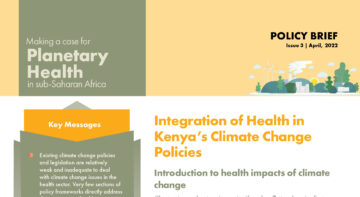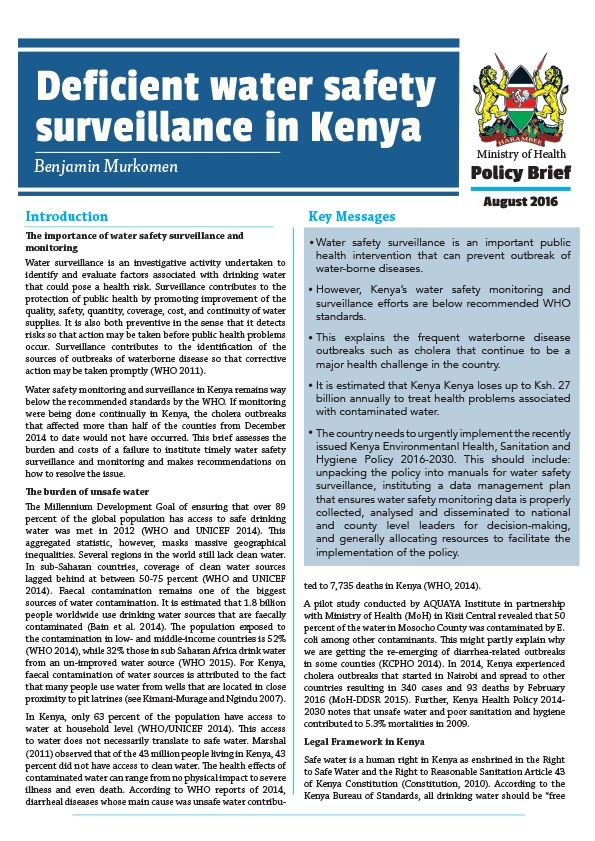
Water surveillance is an investigative activity undertaken to identify and evaluate factors associated with drinking water that could pose a health risk. Surveillance contributes to the protection of public health by promoting improvement of the quality, safety, quantity, coverage, cost, and continuity of water supplies. It is also both preventive in the sense that it detects risks so that action may be taken before public health problems occur. Surveillance contributes to the identification of the sources of outbreaks of waterborne disease so that corrective action may be taken promptly.
Water safety monitoring and surveillance in Kenya remains way below the recommended standards by the WHO. If monitoring were being done continually in Kenya, the cholera outbreaks that affected more than half of the counties from December 2014 to date would not have occurred. This brief assesses the burden and costs of a failure to institute timely water safety surveillance and monitoring and makes recommendations on how to resolve the issue.
Related Publications
